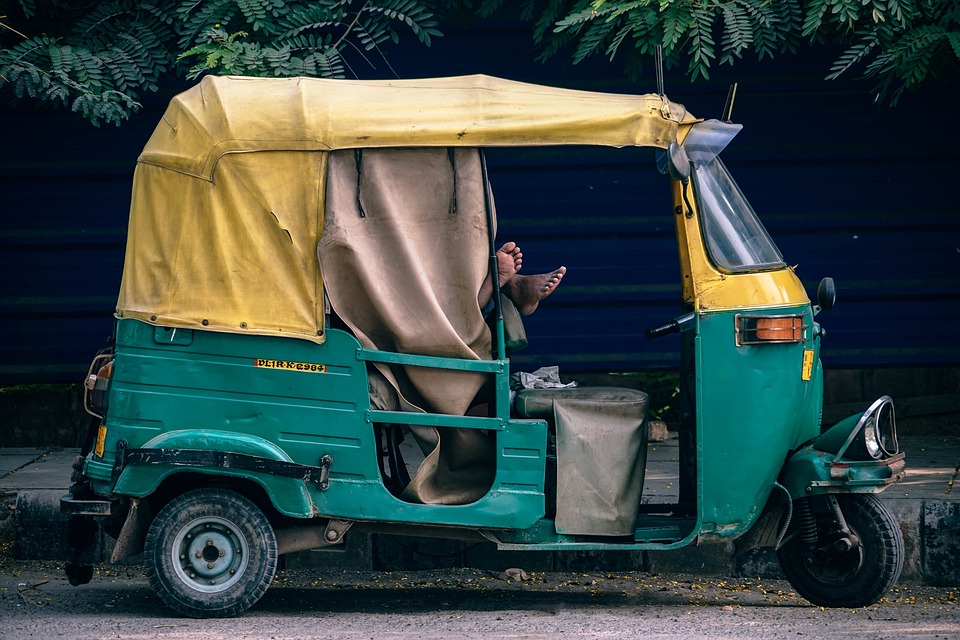Why Was Independent India Declared a Republic?
When India sued for independence in 1947, the 1931 British Statute of Westminster should have seen the country continue to owe allegiance to the British crown as a condition of its retaining status as a member of the Commonwealth (Sing 469). Instead, a complex combination of the realities of Britain’s post-war political health, fear of the growing influence of the USSR, and religious sensibilities within India resulted in India both declaring independence as a republic and retaining status as a member of the British Commonwealth (an act which continues to stand in direct contrast to other Afro-Asia protectorates such as Burma) (Bahl 247). The years of drafts and negotiations undertaken by the Indian National Congress to produce a constitution which would enable India to assert republic status are not the focus of this essay. Instead, I will attempt to examine the factors which made the creation of such a constitution both possible and desirable.
With the end of WWII, Britain was forced to confront the reality that neither the Treasury nor the martial force enjoyed the strength and stability of the pre-war years. The USA and the USSR were the new superpowers, and Britain was forced to navigate the dissolution of the Empire. Key to that dissolution was India, long a bastion of British power in the East and a crucial defense against the westward expansion of the USSR. There was no question of the Empire raising either the funds or military numbers needed to re-assert full authority over India, and the prospect of remaining a member of the Commonwealth under the traditional auspices (following the precedent set by Canada in 1867) was unpalatable to the Indian National Congress (Sarkar 470). Just as Britain could not afford to subdue India, India could not afford to force the issue of British sovereignty in the Commonwealth. To ensure India’s cooperation in supplying troops and a cooperative approach to border defense with the newly-created Pakistan, Britain was obligated to secede to India’s demands for independence (Sing 471). The resolutions of the Purna Swaraj dictated that this independence take the form of a republic.
But British foreign policy was not the only factor involved in India’s pursuit of a republic state. If we accept the assertions of Sarkar, the “Hundi neeti-shastras… dharma-shastras… and epics… contain frequent discussions as to the restraints on royal absolutism, the responsibility of ministers and the authority of the people” (583). Thus, we can assume that republican sentiments had long been entrenched within Indian society. To the Hindu population, at least, the prospect of becoming a royal dominion must have stood in direct opposition to their religious philosophy, especially as the British history of violence and oppression within India would have clearly violated the Brahmic principal that a sovereign was only a sovereign if he acted for the protection of the Hindu people (Sarkar 584). There also appears to have been historical precedent: at least one of the clans of Ancient India utilized a political system of election and representation that to all intents and purposes seems to mirror the spirit of the modern democratic elections (589). This historical precedent, therefore, would appear to have paved the way for the democratic and republican sentiments of India in the mid-20th century. Thus, the formation of a republic must have seemed, therefore, a natural progression from the declaration of India as an independent nation.
In conclusion, while the social and political factors which led to India pursuing the path to independence are far too complex to be examined here, it seems reasonable to posit that two crucial principals led to the formation of an Indian republic rather than a commonwealth dominion. First, the weakening of Britain’s power on a global scale can hardly be said to have been the defining factor, but it certainly appears to have been the reason why the Dominion of India was able to transition to a republic within the space of three years. Second, the historical tradition and interest in democratic principles alludes to the more complex underlying social sentiments that characterized much of the resistance to British rule in the early 20th century.
Works Cited
Bahl, A. K. “Significance of India’s Membership of Commonwealth.” The Indian Journal of Political Science, 20.3, 1959, pp. 247-254, www.jstor.org/stable/42748353.
Sarkar, Benoy Kumar. “Democratic Ideals and Republican Institutions in India.” The American Political Science Review, 12.4, pp. 581–606.
Sing, Anita Inder. “Keeping India in the Commonwealth: British Political and Military Aims, 1947-49.” Journal of Contemporary History, 20.3, 1985, pp. 469-481, www.jstor.org/stable/260355.
When using specific ideas from the example in your own paper, make sure that you are not plagiarizing. It’s better to develop ideas that you like. However, if writing an India essay in English is a torture for you, you can apply for help to our writers. They will help you with any task of any level you need. Read the sample below attentively so that you can decide whether you need help or not. In case you need it, do not hesitate to contact us! Your deadline is looming closer by the minute!
